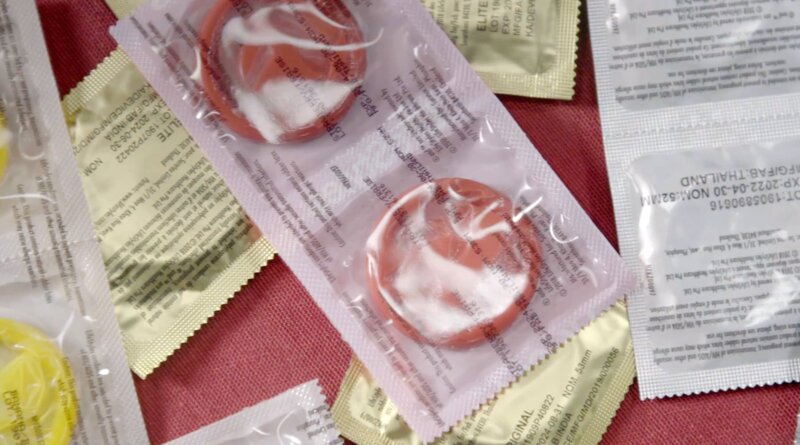Reddit Leads the Way for STD Information Seeking
Oct. 7, 2022 – Where do teens and young adults go to talk about sex, sexual health, and sexually transmitted diseases?
The obvious – routine medical checkups, hanging out with friends or partners – are possibly becoming less common than social media platforms for information and advice. And it appears that researchers and doctors alike are starting to pay close attention by meeting users where they are – both to observe and take part in real-time exchanges around sexual health topics that occur in more leveled, stigma-free playing fields.
For patients and doctors, it’s a win-win situation, one that provides a chance to address and prevent the spread of STD misinformation and, at the same time, help to reverse skyrocketing rates of some of these infections in younger people.
Ina Park, MD, an STD doctor and professor of family and community medicine at the University of California, San Francisco, School of Medicine, says that almost all of her and her colleagues’ patients – especially within a certain age range – are on social media.
“Many have had negative experiences when they’ve disclosed their sexual practices to their clinicians, when they felt that they were being judged for how many sexual partners they had, or [felt] that getting an STD meant getting punished for bad behavior” she says.
This is especially true of sexual minority youth (LGBTQ), whose clinical encounters are all too often marred by doctors who lack an understanding of gender identity issues, or by those who aren’t comfortable discussing sexual health and STDs with their patients.
Perhaps this explains, at least in part, why platforms like Reddit and its smaller, moderated community forums, known as subreddits, are getting more popular. At last count, there were more than 3.4 million subreddits dedicated to specific topics, including the ‘Ask Me Anything (AMA)’ STD subreddit (r/STD), which does regular online question-and-answer sessions on sexual health and STDs among a community of 23,000 active users.
Discovering and Leveraging r/STD
In 2019, a group of researchers from the University of California, San Diego, did a small study to find out if people were getting medical diagnoses on social media platforms. They chose STDs as a case study, in part because these infections were getting more common.
“Our goal was to introduce the concept of crowd diagnosis, where you go to obtain a diagnosis on social media for a clinical outcome from your peers,” explains John Ayers, PhD, vice chief of innovation in the Division of Infectious Diseases and Global Public Health at UCSD and one of the study’s authors.
“When we looked at the data, we saw that 100s of people were going on Reddit and a large plurality were posting pictures, and asking for a diagnosis of sexually transmitted diseases,” he says.
The team’s findings were published later that year in JAMA and highlighted that 58% of roughly 17,000 posts were requests for a crowd diagnosis, 31% of which also included an image of physical signs of infection. Only 20% of posts asking for a crowd diagnosis were made to obtain a second option after receiving a diagnosis from a doctor.
Ayers says the main takeaway is that many doctors have a “field of dreams” perspective, “you know, if we build it, they will come. But they’re not coming, so why don’t we go and help them where they already are?”
He also explains that it’s not enough to simply discover that a phenomenon exists (people going online to get a diagnosis), but that by discovering or revealing a problem (possible misinformation), doctors have a chance to intervene.
That is exactly what the American Sexual Health Association (ASHA) aimed to explore when it when it hopped onto an r/STD AMA forum armed with two experts – Park and a sexologist – and hosted a discussion about STDs. Their goal was to learn what types of information people were seeking, and ultimately drive sexually active people to seek testing through its Yes Means Test public awareness campaign.
The session generated 254 comments, and Park and her co-host addressed 42 questions, most commonly on STD transmission (24%) and STD testing (22%). Other common questions focused on sexual difficulties (15%) and sexuality (15%), although the AMA also included posts discussing contraception, partner communication, research, prevention, and treatment.
|
EXAMPLE: “Can oral herpes be spread to your partner as genital herpes during sex. How long should a person wait after an oral herpes breakout before giving oral sex?” This question received 50 upvotes, indicating approval or support for the post from other participants. Notably, the first response to the question was from a fellow user who recommended that the poster check out a herpes organization site in the U.K. Park then followed with information on how oral herpes is spread between partners during oral sex, the need to wait until the sore is healed before resuming oral sex, and when shedding is most active. |
If scores and click-throughs indicate outcomes, then The ASHA AMA resulted in the best possible results. The session received a 5 out of 5 Reddit AMA score (the benchmark is 4), three community awards, and a click-through rate back to the ASHA site (and its STD testing campaign) of 45% (which surpassed the 10% Reddit benchmark).
Not All That Glitters Is Gold
Reddit AMAs don’t come without risk, and it’s best for those who want STD information to be aware of the pitfalls and red flags.
“One of the things to think about is that an approach like the subreddit adds to the false narrative that STDs in particular have to be symptomatic to be problematic, which we know is not the case,” explains Dennis Li, an assistant professor of psychiatry and behavioral sciences, and sexual and gender minority health and well-being, at Northwestern Feinberg School of Medicine in Chicago.
“We also have to be careful not to misdiagnose and potentially cause harm,” he says, emphasizing that many young people – especially those with equity issues – don’t have experience in navigating health systems or reputable websites for information.
Ayers concurs.
“One of the outcomes in our study was people saying that they had a positive HIV test and were asked to come back and get a confirmatory test,” he explains. “But then someone in the community said don’t worry about it; you’re OK.”
So, “it’s OK to seek out advice but look for confirmation of that advice,” he says. “Make sure to follow [up] with a physician or go to a forum where you can actually engage with a physician.”
Although she took part in the ASHA AMA session, Park has strong words of caution for people seeking advice on social platforms, especially when it comes to Reddit, which carries with it the baggage of hosting a lot of trolls.
“Reddit has the highest risk in terms of accepting advice because oftentimes, the person responding back to you is anonymous. They can say that their credentials are x, y, and z, but you really don’t have any way of proving that” Park says.
“You don’t know who’s answering your question.”
Personally, she says that she uses her real name, on the few Reddit forums she’s taken part in as well as on her Instagram page, where she shares STD information.
Park also cautions users to avoid someone trying to sell something, as the information is, by nature, likely to be somewhat biased. Like Ayers, she recommends taking the information and verifying it before making health decisions.
Reputable sources include ASHA, the CDC, Scarleteen (an LGBTQ-positive, graphic-forward site), Planned Parenthood, and, of course, WebMD.
Health Experts Call for New Prevention Strategies
In September, the CDC held the 2022 STD Prevention Conference, resulting in an Associated Press news report that warned of an out-of-control “STD situation” in the U.S. In addition to dire news about rising infection rates for STDs such as gonorrhea, the CDC also reported that 2021 syphilis cases reached a high not seen since 1948 and that HIV cases were likewise on the rise.
The key takeaway from this conference was that prevention is key, especially among at-risk populations like young people, men who have sex with men, Black and Hispanic Americans, Indigenous Americans, and women.
According to Li, testing should be the best outcome.
“What online resources can really help with is reducing stigma around testing, getting people comfortable asking questions to a medical or health care provider, and helping to bolster trust in the medical system – not just trusting that people are doing the right thing, but trust that you’ll be taken care of in a way that respects you as a person,” he says.
Li sees sites like Reddit as bridging the gap between doing things on one’s own and knowing when to go to a qualified health professional.
But there may be a need for doctors to take the leap onto social media, if only to start following user accounts and learning what people are talking about.
By doing so, “we can minimize the harm,” says Ayers.




